Indeed, the file can be read and parsed with Windows CryptoAPI.
The file mozilla.rsa of Mozilla extension is a PKCS#7 signature. On Linux it can be viewed with the following command:
openssl pkcs7 -print -inform der -in META-INF/mozilla.rsa.
The signature file contains a chain of certificates. One of them has addon ID in its CN component of Subject field.
This Stack Overflow answer explains how to parse PKCS#7 data using CryptoAPI CryptQueryObject() function.
For reference Microsoft Support has also more elaborate example of parsing: https://support.microsoft.com/en-us/help/323809/how-to-get-information-from-authenticode-signed-executables.
Using all these sources, one can compile the following code which would print the required ID:
#include <windows.h>
#include <wincrypt.h>
#pragma comment(lib, "crypt32.lib")
...
std::string rsaPath = xpiDir + "\\META-INF\\mozilla.rsa";
std::wstring wRsaPath(rsaPath.begin(), rsaPath.end());
HCERTSTORE hStore = NULL;
HCRYPTMSG hMsg = NULL;
BOOL res = CryptQueryObject(
CERT_QUERY_OBJECT_FILE,
wRsaPath.c_str(),
CERT_QUERY_CONTENT_FLAG_PKCS7_SIGNED,
CERT_QUERY_FORMAT_FLAG_BINARY,
0,
NULL,
NULL,
NULL,
&hStore,
&hMsg,
NULL
);
if (!res) {
std::cout << "Error decoding PKCS#7 file: " << GetLastError() << std::endl;
return -1;
}
PCCERT_CONTEXT next_cert = NULL;
while ((next_cert = CertEnumCertificatesInStore(hStore, next_cert)) != NULL)
{
WCHAR szName[1024];
// Get subject name
if (!CertGetNameString(
next_cert,
CERT_NAME_SIMPLE_DISPLAY_TYPE,
0,
NULL,
szName,
1024
)) {
std::cout << "CertGetNameString failed.\n";
return -1;
}
// only process names looking like IDs, e.g. "CN={212b458b-a608-452b-be1f-a09658163cbf}"
if (szName[0] == L'{') {
std::wcout << szName << std::endl;
}
}
CryptMsgClose(hMsg);
CertCloseStore(hStore, 0);
The comparison szName[0] == L'{' is not very reliable, it is only used for the sake of code simplicity. One might want to use better way of detecting addon ID value, e.g. regex.
